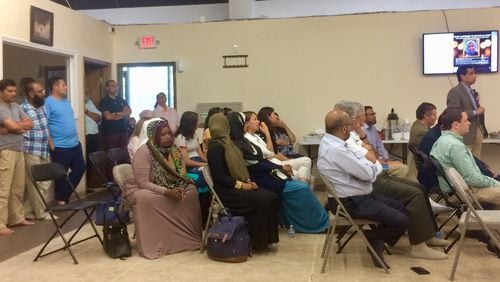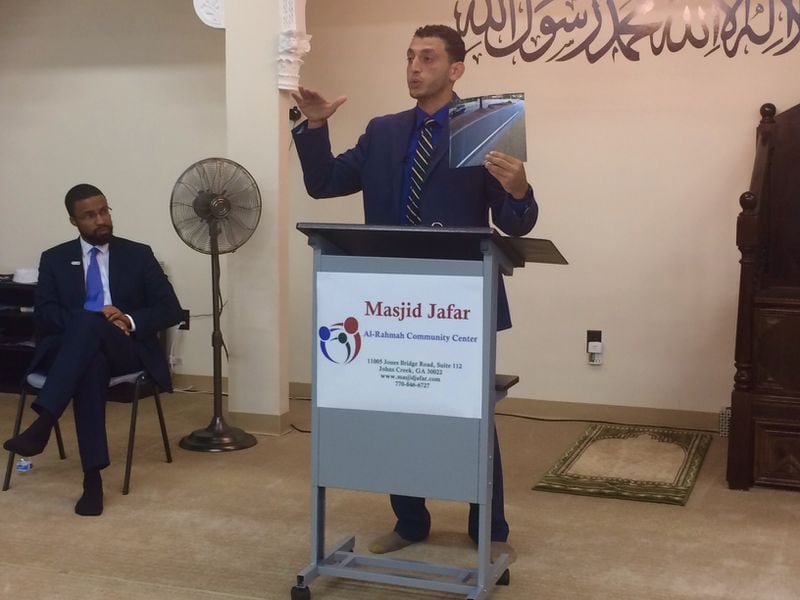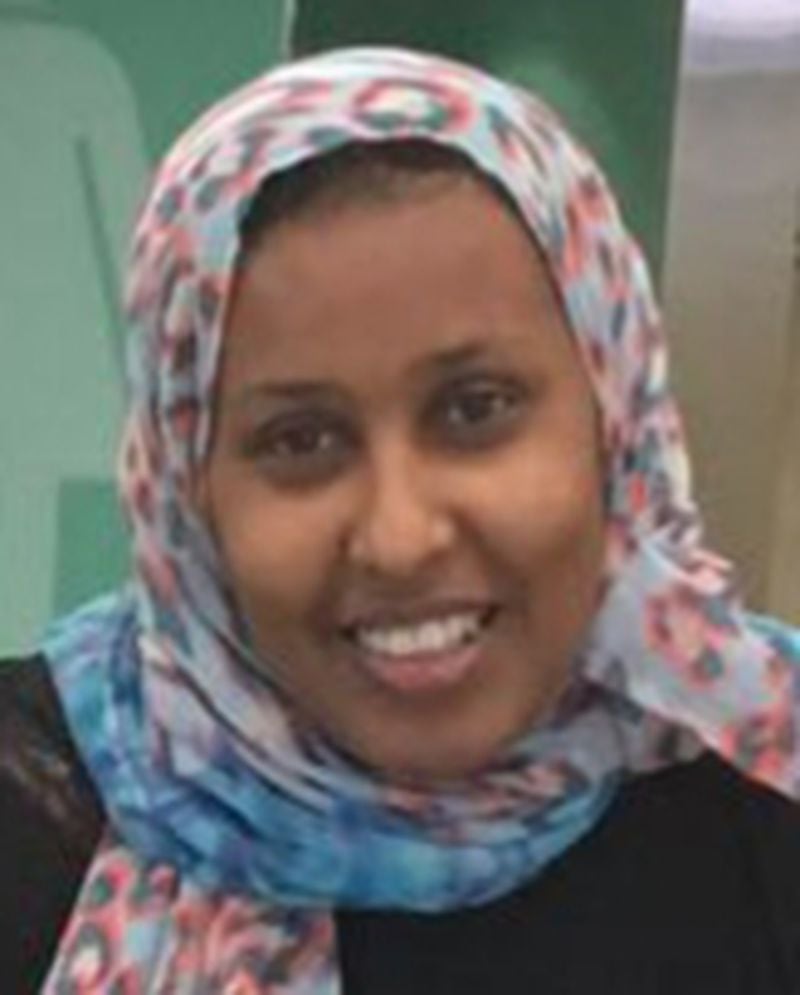An uncomfortable moment came Saturday at a community gathering in a storefront mosque in Johns Creek when the discussion veered to whether immigrants or other minorities should call the cops during a crisis.
The case in point was the police shooting death in April of a Somali-born woman, 36-year-old Shukri Ali Said, who was suffering a breakdown and wandering her subdivision with a passport and a knife. Her sister called 911 out of concern for Said’s safety. Minutes later, she was dead.
A man in the crowd Saturday said, “If I have a family crisis. I will not call police. I see the police as problem creators, not problem solvers.”
The comment brought to the podium a slight woman, Aisha Hussain, the lady who called in the police who killed her sister.
“You are blaming me when you say, ‘Don’t call 911,’ ” she said. “It is very, very unfair to make these comments If we say do not call 911, we are doing ourselves a disservice.
“Why do white people have the luxury to call 911 and get different results? Don’t tell another person of color to not call 911. If we do (that), they why are we paying them?”
RELATED: Who was Shukri Ali Said? How did she end up dead at hands of police?
RELATED: How police handle calls involving the mentally ill
The gathering at Masjid Jafar was called by the family, their lawyer and the Georgia chapter of the Council on American-Islamic Relations (CAIR) to talk about sensitive subjects involved with policing in a population that is changing. Police now must recognize and deal with cultural and language differences, as well as people with mental health issues, they said.
Credit: Bill Torpy
Credit: Bill Torpy
Ibrahim Awad, a lawyer representing the family, said that two of the dead woman’s sisters and a brother-in-law were shown police car video of the situation by the Georgia Bureau of Investigation, which is investigating the shooting. Awad criticized the police for quickly chosing to use force in dealing with the woman who was, in her deluded way, simply wanting to go home.
He said police told the family the entire encounter took about 14 minutes. But he says that footage from neighborhood safety cameras and police videos apparently show that the woman was dead less than three minutes within encountering police.
Credit: HANDOUT
Credit: HANDOUT
Awad said four officers and other first responders arrived and they had been told she was having a breakdown.
Within a minute, Awad said, police used a Taser and a bean bag gun to stop her.
“That’s not a de-escalation with a mentally ill person, that’s escalation,” he said.
The 5-foot-5 woman then raised her outstretched hand. Awad said it’s unclear whether that hand held a knife or a passport. At that point she was shot, dropping face-down as if she were in prayer. Awad said her sisters, who watched the video, said Said got up with her hands across her chest and was stumbling away when more shots were fired.
Johns Creek Police Chief Ed Densmore in a brief interview Saturday said he could not talk about the investigation. He said his force does not have body cameras because of “budgetary reasons.”
Earlier, a department spokesman said one of the officers involved has more than 300 hours of training in negotiating and is a crisis intervention officer. The other attended de-escalation tactics in 2017.
Densmore said first responders “are the only (government agency) open 24/7. A lot of society’s problems get thrown at our feet.”
About the Author









